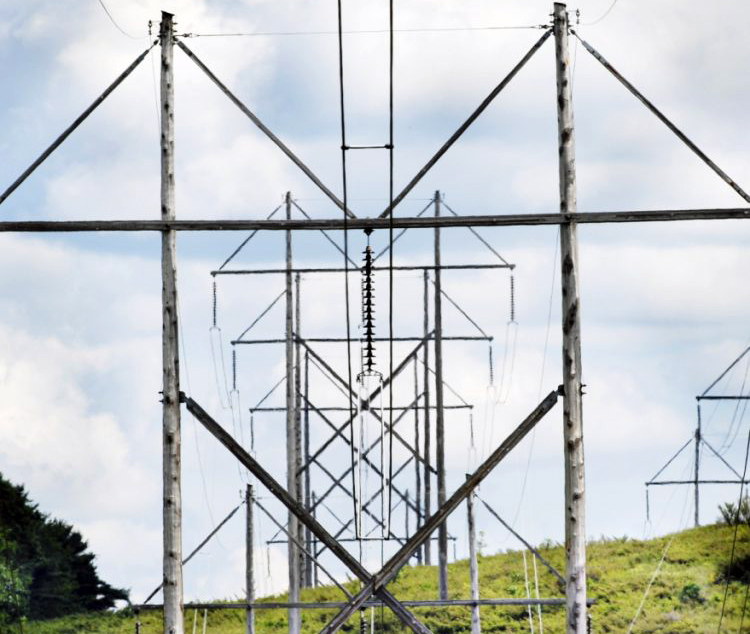Hydro-Quebec’s claim that — as paraphrased by Portland Press Herald Staff Writer Edward D. Murphy — the electricity they would send south is “produced with none of the carbon emissions blamed for global warming” is dead wrong, directly contradicted by scientific research sponsored by Hydro-Quebec itself. I care deeply about aggressively addressing climate change, and I agree with your Editorial Board (Our View, Dec. 9) that the most important question in evaluating the proposed transmission line to Massachusetts is whether it will reduce total greenhouse-gas emissions.
But to answer this question correctly, we must use the best available science. The newspaper should avoid passing along Hydro-Quebec’s misinformation. Either the utility officials who claim their power is carbon-free are ignorant of the science published by their colleagues, or they are ignoring this established science in their attempt to sell power.
International Hydropower Association data show that Hydro-Quebec electricity is just about as dirty as hydropower gets. Why? When Hydro-Quebec dams rivers on northern Quebec’s relatively flat terrain, it floods vast areas of forests and wetlands under shallow water. The amount of power Hydro-Quebec produces per acre flooded is among the lowest of any hydropower in the world. The trees, bogs and soils Hydro-Quebec floods have been storing carbon since the last ice age. When flooded, this stored carbon decomposes, releasing CO2 and methane. To make things worse, drowned trees are gone forever and cannot grow back to remove CO2 in the future.
Here’s an example of their own best available science that Hydro-Quebec did not provide to the newspaper: About a decade ago, Hydro-Quebec built dams to divert the Rupert River to the Eastmain hydro facility, flooding 175 square miles of virgin forest and wetlands. As a result, the first year after flooding, as much CO2 was released as would have been released by a coal-fired power plant generating the same amount of electricity.
Fortunately, the release of CO2 slows with time. Unfortunately, it never becomes insignificant. After five years, the total emissions from these Hydro-Quebec dams and natural gas power plants are about equal; after 10 years, the total release from hydro is “only” two-thirds that of natural gas. Extrapolating for a century, Quebec’s hydro is about half as dirty as gas — something of an improvement, but in no way “carbon free.”
How can we make the best of this situation? To reduce total regional emissions, Hydro-Quebec should export its somewhat-dirty hydropower to neighboring New Brunswick, displacing the much dirtier power produced there from burning coal while Maine and Massachusetts pursue truly carbon-free sources. That would result in a meaningful overall decrease in overall greenhouse-gas emissions.
Hydro-Quebec knows that their hydropower causes significant greenhouse-gas release. Yet, when marketing their project, they omit this information. This should make us skeptical about their other claims.
Hydro-Quebec’s assertion that it has “wasted” enough water to provide 10 terawatt hours of electricity because it lacks transmission capacity is not backed by documentation. In contrast, a 2017 study of Hydro-Quebec’s export capacity found that the limiting factor for total energy output is generation, not transmission capacity. This makes sense — why would Hydro-Quebec pay the high cost of building dams and installing generators and not also provide adequate transmission capability?
Like any hydropower operation, Hydro-Quebec must deal with large variations in rainfall. It is expensive to build enough generation to handle peak flows, and then let the generators stand idle during years that are either dry or have normal rainfall. During unusually wet times, the water is “wasted” because it is more economical to spill water occasionally than to waste generation capacity most of the time. While it may be true that enough water to generate 10 terawatt hours of electricity has been spilled during times of unusually high water, that in no way demonstrates that the rate and timing of this spillage could have been used to fulfill a contract for a more steady supply of power.
We can’t trust Hydro-Quebec publicists to represent correctly the scientific research that their company supported about their own carbon emissions. The newspaper and the Maine Public Utilities Commission should not accept what Hydro-Quebec says about “clean” energy and spillage without requiring and thoughtfully reviewing documentation.
Bradford H. Hager is a professor of earth sciences at MIT and a part-time resident of Mercer.
Send questions/comments to the editors.



Comments are no longer available on this story